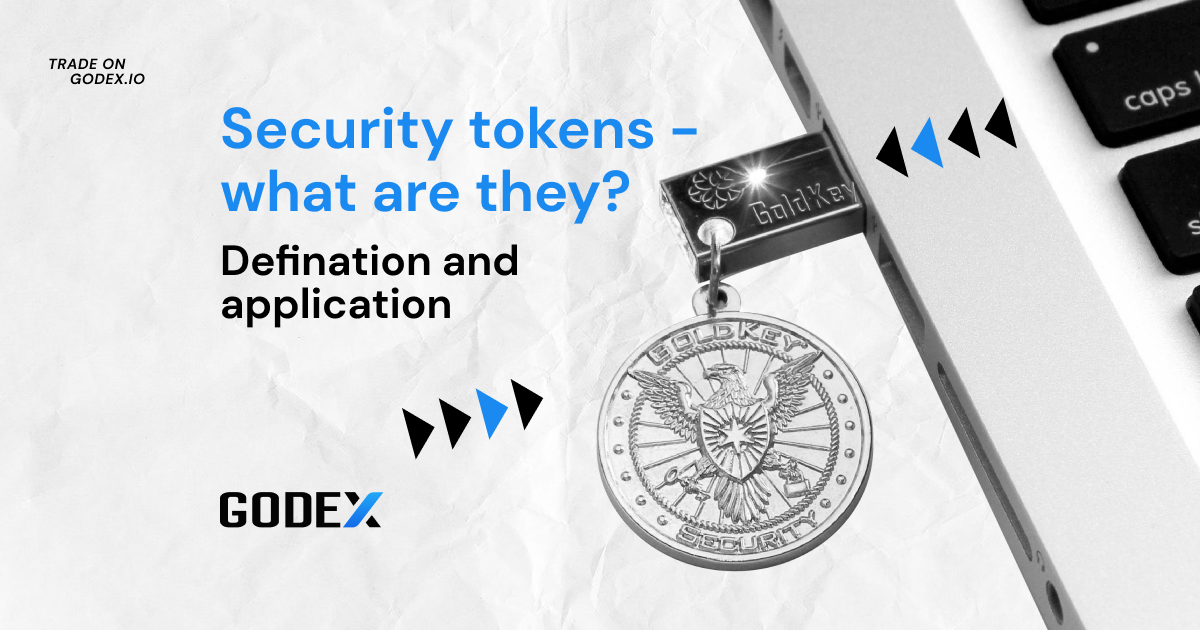Table of Contents
The trend towards tokenization of real business continues to develop and scale. Today, companies are trying to tokenize absolutely everything: from securities to their own products and intellectual property. If you are interested to know what are the pros and cons of such a solution and how tokenization can help businesses attract new investors among ordinary users, you are welcome to dive into the topic together.
What Is a Security Token?
This is a particular type of stablecoin pegged not to a hard currency, but to the securities of an enterprise. It is a digital unique certificate of ownership of certain stocks, bonds, and other assets from this category. And beyond that, some securitized tokens can be evidence of tenancy of real estate, artwork, and much more.
These rights are recorded in a smart contract, and the tokens are traded on exchanges. The circulation of security tokens takes place per the legal regulations of financial regulators in various countries, for example, the Securities and Exchange Commission of the United States (SEC) or of the Swiss Financial Market Supervisory Authority (FINMA).
What are security tokens? Why are they needed?
Due to the legal perspective of securitized tokens, they are treated differently compared to utilitarian tokens. Utility tokens are popular among ICO organizers and are a means of gaining access to services or goods.
A security token in its turn is an investment element like a company’s stock. To clarify whether a token falls under the securitization category, you need to answer a few questions:
1) If you invest in a company, do you buy a token to own that company?
2) Do you expect a return?
3) Will there be profits from the third party? Will the company sell its services to third parties and give the profits from these parties to its investors?
4) Will you receive a share in the company? It is necessary to be careful as some ICOs prescribe that when buying tokens no one gets any share, and it is just a token.
Security tokens solve one of the biggest problems of ICOs, which is the lack of compensation guarantees in case of project failure or fraud on the part of any organizers. In addition, they serve as a tool for hedging risks in such an investment strategy called Simple agreement for future tokens. Tokenized securities are the most common form of security tokens. However, it is worth clarifying that these two terms do not mean the same thing:
- Security tokens have some of the characteristics of securities. More technically speaking, they are blockchain-based representations of certain privileges, such as revenue sharing, access, management rights, or a combination of these and other rights, and can be classified as securities due to their incentive structure.
- Tokenized securities are securities that move on the blockchain and represent either specific assets off-chain or mimic established asset groups such as bonds, stocks, or funds.
Combining these terms blurs the distinction, and this harms a broader understanding of the potential inherent in them and complicates attempts at classification, which in turn affects both regulation and investment.
How do security tokens work?
When an investor purchases a security token, the smart contract records the transaction and assigns the investor the rights associated with that token.
Security tokens are also backed by real assets that are held and managed by a trusted institution called a custodian. Custodians provide safe custody of assets and perform various functions related to recording and transferring rights to assets.
Types of security tokens
Security tokens are digital assets that represent an interest in a real asset or confer the right to acquire a share of the income or gains from that asset. They can be backed by various types of assets including:
- Shares: Security tokens can represent an equity stake in a company, giving their holders the right to participate in the management of the company and receive dividends.
- Bonds: Security tokens crypto can represent bonds, entitling their holders to receive interest on the loan and repayment of principal at the end of the term.
- Real Estate: Crypto security tokens can be secured by real estate, entitling the holders to receive rental income or a share in the profits from the sale of real estate.
- Other assets: Security tokens can also be secured by other assets such as artwork, intellectual property, commodities, and others.
Security token advantages
One of the main advantages of security tokens over traditional financial products is the elimination of intermediation by banks and other organizations. This creates a completely diversified environment for investing and transacting.
Security tokens offer several significant benefits for both investors and companies:
- Greater transparency: Security tokens are registered and tracked on the blockchain, ensuring transactions are transparent and secure.
- Legal Compliance: Security tokens comply with securities laws and regulations, making them legal to sell and buy.
- Liquidity: Investors can easily buy and sell security tokens on specialized platforms, ensuring high liquidity.
- Access to new markets: Security tokens allow investors to access markets and assets that were previously restricted.
- Cost reduction: Security tokens can reduce transaction and asset management costs through the automation and efficiency of blockchain technology.
- Global accessibility: International Investors can participate in transactions with security tokens, increasing the availability of investment opportunities.
- Portfolio diversification: Security tokens allow investors to diversify their portfolios to include a variety of asset types.
Vulnerabilities of Security Tokens
Despite the many benefits, security tokens are also not lacking the risks:
- Regulatory risks: Changes in law and regulation may affect the legality and availability of security tokens in various jurisdictions.
- Technical risks: Blockchain technology does not preclude the possibility of technical failures, hacker attacks, and other issues that could affect the security and availability of assets.
- Insolvency risk: If a custodian or security token issuer goes bankrupt, investors may lose access to their assets.
- Liquidity: Some security token markets may be less liquid, which may make it difficult to sell assets.
- Exchange rate risks: Security token exchange rates may be subject to significant fluctuations, which may affect the value of assets.
Read also Crypto coins and tokens: what is the difference?
Investment Potential
Although many projects are still desperately trying to avoid a situation in which the tokens they issue are classified as securities, the general trend is in that direction. Whether this is good or bad is a question to which there is no clear answer.
On the one hand, the arrival of institutional investors, namely accredited investors, can dramatically change the entire landscape of the industry and give it an important impetus for development. On the other hand, it should be remembered that security tokens are fundamentally different from cryptocurrencies in their usual sense. There is a large layer of the community that categorically refuses to accept the new rules of the game, offering its solutions based on the Bitcoin blockchain and not unreasonably believing that the future lies in a truly distributed network with its powerful security mechanism in the form of the Proof-of-Work algorithm.
At the same time, we should consider the players who will continue to adhere to the principles of common ICOs. They may leave for other jurisdictions, and change the rules of the game somewhere, but in general, they will continue to offer investment opportunities for a wider range of users.
The trend, however, is clear, although the transition to it will take work. In addition to the need to comply with the rules of financial regulators, the industry also requires the necessary infrastructure to evolve. And that may prove even more challenging than simply acquiring Bitcoin.
FAQ
How can I invest in security tokens?
Overall, security tokens represent an important step towards developing investments in the digital age and can be a tool to promote greater accessibility and transparency in financial markets.
For those looking to invest in security tokens, you should start with STO platforms. These exchanges host these digital assets, allowing investors to buy and sell tokens just like stocks or any other investment means.
Are security tokens subject to regulations?
Each country has its attitude to STOs and laws and rules regulate this sphere. Although STOs are treated more loyally than ICOs, there are still countries where they are prohibited like China and South Korea, while in the USA and Mexico, they are allowed, but have stringent regulations.
Can security tokens be traded on traditional cryptocurrency exchanges?
Security Token can be traded on specialized platforms and exchanges that provide liquidity and support compliance with financial regulatory rules and requirements:
- Alternative Trading Systems allow the merchandizing of crypto security tokens in compliance with regulatory requirements.
- Decentralized Exchanges provide the ability to trade security tokens without the engagement of a centralized intermediary hub.
- Digital Asset Exchanges such as tZERO, INX, Coinbase, and others provide the ability to trade cryptocurrency tokens security in compliance with rules and regulatory requirements. Similar rules are inherent to platforms of a private nature that trade cryptocurrency tokens in closed circles.
Start a Cryptocurrency exchange
Try our crypto exchange platform
Disclaimer: Please keep in mind that the content of this article is not financial or investing advice. The information provided is the author’s opinion only and should not be considered as direct recommendations for trading or investment. Any article reader or website visitor should consider multiple viewpoints and become familiar with all local regulations before cryptocurrency investment. We do not make any warranties about reliability and accuracy of this information.
 Linda Larsen
Linda Larsen 
Read more
Ripple (XRP) price has been widely discussed by the cryptocurrency community since it has gained public interest in 2017, even though it was founded by Chris Larsen and Jed McCaleb years before. The platform offers innovative blockchain solutions for the banking sector and has the potential to disrupt the whole finance industry. In recent years, […]
In this article we will talk about Ripple (XRP) and its price prediction. What is Ripple (XRP) Ripple is a San Francisco-based startup that was launched in 2012 by Ripple Labs as a global network both for cross-currency and gross payments. Ripple history began in 2004 with the discussions around the digital coin in the […]
You may well think that an article dedicated to a Tether price prediction or the Tether price in general is a little bit strange — it is a stablecoin after all. However, the price of Tether does fluctuate significantly, although it is nowhere near as volatile as non-stablecoin cryptos. This means that staying up to […]
In the article we share our vision at Zcash cryptocurrency main features and add several price predictions. As cryptocurrencies gain global acceptance and decentralisation slowly enters our lives, privacy becomes the main concern when talking about blockchain adoption. It is no secret that distributed ledger is by far the most secure and transparent technology ever […]
Chiliz coin (CHZ) offers a compelling opportunity for traders interested in the intersection of blockchain technology and sports. By enabling fans to influence team decisions through the Socios app, Chiliz directly monetizes fan engagement and connects with major sports teams like Juventus and Paris Saint-Germain. These partnerships not only enhance the platform’s visibility but also […]
The exponential growth of Bitcoin Satoshi Vision (BSV) against the general bear trend on the cryptocurrency market in autumn 2019 has impressed the community. Due to the increasing market capitalization, the newly emerged altcoin was ranked 5th on CoinMarketCap and managed to maintain its high position at the beginning of 2020. In the article we […]